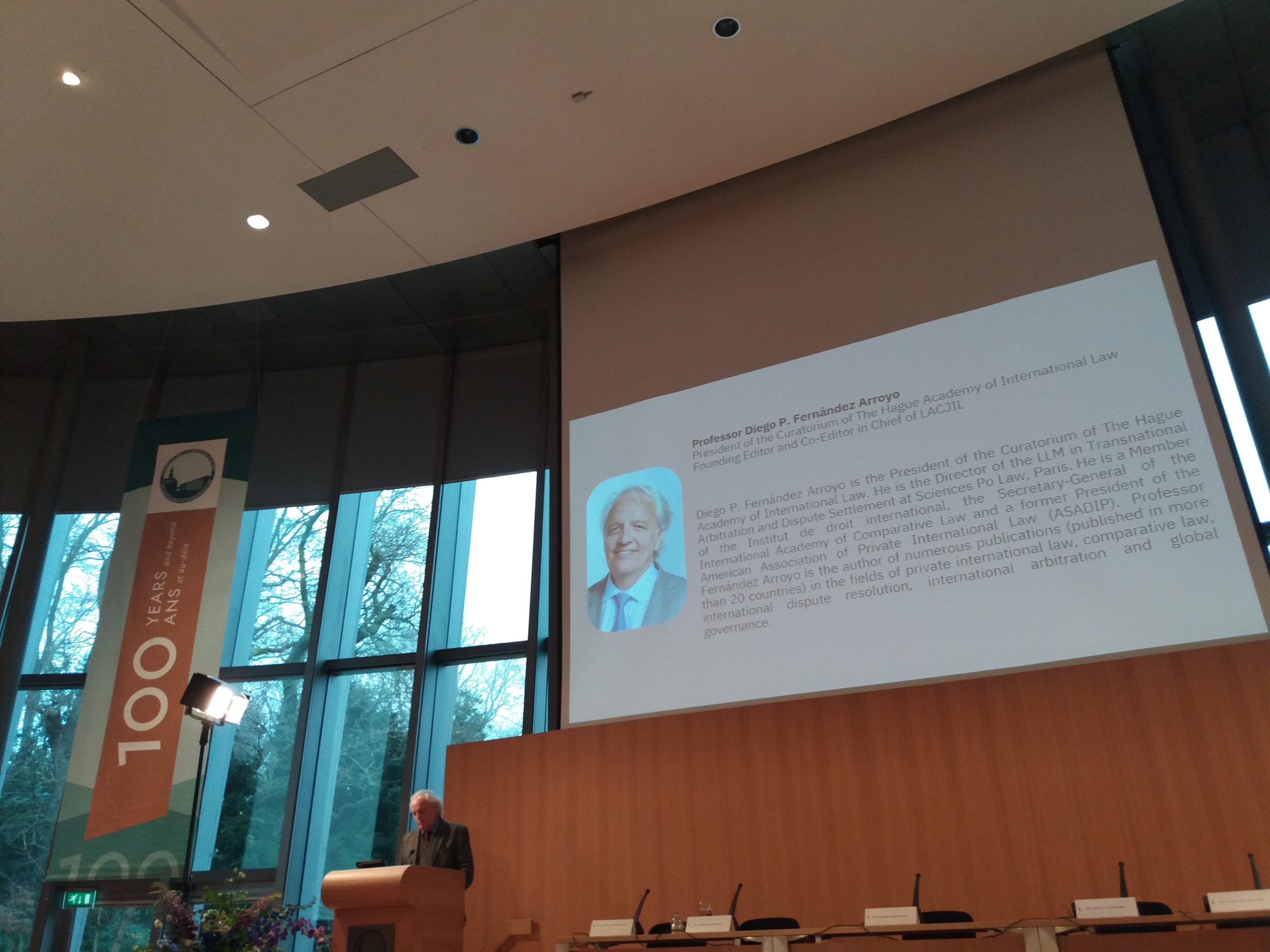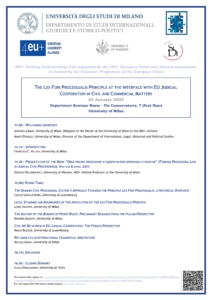Views
Overview of the 2023 Amendments to Chinese Civil Procedure Law
Written by NIE Yuxin, Wuhan University Institute of International Law
1. Background
China’s Civil Procedure Law was enacted in April 1991 by the Fourth Session of the Seventh National People’s Congress. Since then, it had undergone four revisions in 2007, 2012, 2017, and 2021. However, no substantial revisions were made to the provisions concerning foreign-related civil litigation. The latest amendments to the Civil Procedure Law in 2023, referred to as the new CPL, involve 26 amendments, including 14 modified articles and 15 new additions. Notably, 19 changes deal with the special provisions on cross-border procedures.
China Adopts Restrictive Theory of Foreign State Immunity
Written by Bill Dodge, the John D. Ayer Chair in Business Law and Martin Luther King Jr. Professor of Law at UC Davis School of Law.
On September 1, 2023, the Standing Committee of the National People’s Congress promulgated the Foreign State Immunity Law of the People’s Republic of China (FSIL) (English translation here). When the law enters into force on January 1, 2024, China will join those countries—a clear majority—that have adopted the restrictive theory of foreign state immunity. For the law of state immunity, this move is particularly significant because China had been the most important adherent to the rival, absolute theory of foreign state immunity.
In two prior posts (here and here), I discussed a draft of the FSIL (English translation here). In this post I analyze the final version of the law, noting some of its key provision and identifying changes from the draft, some of which address issues that I had identified. I also explain why analysts who see China’s new law as a form of “Wolf Warrior Diplomacy” are mistaken. Contrary to some suggestions, the FSIL will not allow China to sue the United States over U.S. export controls on computer chips or potential restrictions on Tiktok. Rather, the FSIL is properly viewed as a step towards joining the international community on an important question of international law. Read more
“Quasi” Anti-Suit Injunctions and Public Policy under Brussels Regime
THE CJEU: “QUASI” ANTI-SUIT INJUNCTION JUDGMENTS ARE AGAINST PUBLIC POLICY UNDER BRUSSELS REGIME
This post is written by Mykolas Kirkutis, a lecturer and PhD student of law at Mykolas Romeris University and visiting researcher at Rotterdam Erasmus School of Law, Erasmus University Rotterdam (EU Civil Justice group).
The Court of Justice of European Union (CJEU) on 7 of September 2023 in its newest case Charles Taylor Adjusting Limited, FD v Starlight Shipping Company, Overseas Marine Enterprises Inc. (case No. C?590/21) 2023 rendered a new preliminary ruling related to a non-recognition of “Quasi” anti-suit injunctions’ judgment under public policy ground of Brussels regime. This case is important because of two aspects. Firstly, CJEU clarified the main elements of “Quasi” anti-suit injunctions’ judgments. Secondly, Court stated what impact such judgments have for mutual trust in EU and if it can be safeguarded by public policy ground.
News
Out now: Buxbaum, “Extraterritoriality in Comparative Perspective” (Ius Comparatum)
In an increasingly interconnected world, the application of laws by States beyond their territorial borders is an everyday reality. Yet, almost a century after the (still) leading findings by the PCIJ in the Case of the S.S. “Lotus”, the details of the concept of “extraterritoriality” remain elusive, and one can easily get lost in the multitude of national practices, ranging from “presumptions against extraterritoriality” to be found mostly in federal systems (mostly for sub-units) to “effects doctrines” and the like in certain areas of law such as e.g. (early) in Germany, (later) in the EU’s competition law and today many other jurisdictions, in particular in Asia.
Given this complexity, this latest publication of the Ius Comparatum Series on “Extraterritoriality in Comparative Perspective” edited by Hannah L. Buxbaum offers a great deal of valuable guidance and insights. Featuring the reports from the most recent IACL/AIDC General Congress in Asunción, the volume provides the reader with unique insights by renowned legal scholars into the practices of 14 national jurisdictions (inter alia China, Germany, Japan, Korea, UK, U.S.) and the the European Union (EU). As is explained in the preface to the book:
Much of the vast scholarly literature on extraterritoriality approaches the topic from the outside in, assessing the extraterritorial projection of state law from the perspective of international law and the constraints it places on state authority. The goal of this project is to approach the topic from the inside out. Considering a range of legal systems, the authors investigate the geographic scope that states claim for their own laws, and the mechanisms by which states translate and locally implement principles of international jurisdictional law.
The Latin American and Caribbean Journal of International Law (LACJIL) has been launched

Today the Latin American and Caribbean Journal of International Law (LACJIL) was launched at the auditorium of the Hague Academy of the Peace Palace. Among the speakers were Prof. Diego Fernández Arroyo, president of the curatorium of the Hague Academy, and H.E. Leonardo Nemer Caldeira Brant, judge of the International Court of Justice. In addition, a very interesting panel was moderated by the Ambassador of Guatemala to the Kingdom of the Netherlands H.E. Ana Cristina Rodríguez Pineda. The panel was composed of the judge of the International Criminal Court H.E Althea Alexis-Windsor, the Ambassador of Colombia to the Kingdom of the Netherlands H.E. Carolina Olarte Bácares, the Ambassador of Argentina to the Kingdom of the Netherlands H.E. Mario J. A. Oyarzábal and the president of ASADIP Prof. Verónica Ruiz Abou-Nigm. The purpose of the panel was to discuss the recent legal developments in Latin America and the Caribbean, which included the ASADIP principles on transnational access to Justice (TRANSJUS). Read more
Seminar on the Lex fori processualis principle – University of Milan, 24 January 2025
 The seminar The Lex fori processualis principle at the interface with EU judicial cooperation in civil and commercial matters will take place on 24 January 2025 at the University of Milan. The seminar is organized as part of the 4EU+ Visiting Professorships Call, supported by the 4EU+ European University Alliance and co-funded by the Erasmus+ Programme of the European Union.
The seminar The Lex fori processualis principle at the interface with EU judicial cooperation in civil and commercial matters will take place on 24 January 2025 at the University of Milan. The seminar is organized as part of the 4EU+ Visiting Professorships Call, supported by the 4EU+ European University Alliance and co-funded by the Erasmus+ Programme of the European Union.
Hosted by the Department of International, Legal, Historical, and Political Studies of the University of Milan, the seminar will open with welcoming addresses (Antonella Baldi and Marco Pedrazzi) and an introduction (Francesca C. Villata). Bartosz Wolodkiewicz (University of Warsaw), currently a 4EU+ Visiting Professor at the University of Milan, will present the findings of his new book on foreign procedural law in civil judicial proceedings (Obce prawo procesowe w sadowym postepowaniu cywilnym, Wolters Kluwer 2024). Following this, a round table with international scholars will explore various aspects of the lex fori processualis principle, covering topics such as historical perspectives (Carlos Santaló Goris), legal standing (Lenka Válková), burden of proof (Martino Zulberti), ne bis in idem in EU judicial cooperation (Marco Buzzoni), and res judicata in international commercial arbitration (Michele Grassi). The seminar will conclude with a discussion and closing remarks by Elena D’Alessandro (University of Turin).
For more information on the 4EU+ Alliance, follow:
Facebook: 4EUplusAlliance
Instagram: 4euplus_alliance
LinkedIn: 4EUplus
#4EUplusAlliance #EuropeanUniversities #GrowingInMotion
With thanks for the tip-off to Dr Lenka Válková, University of Milan




